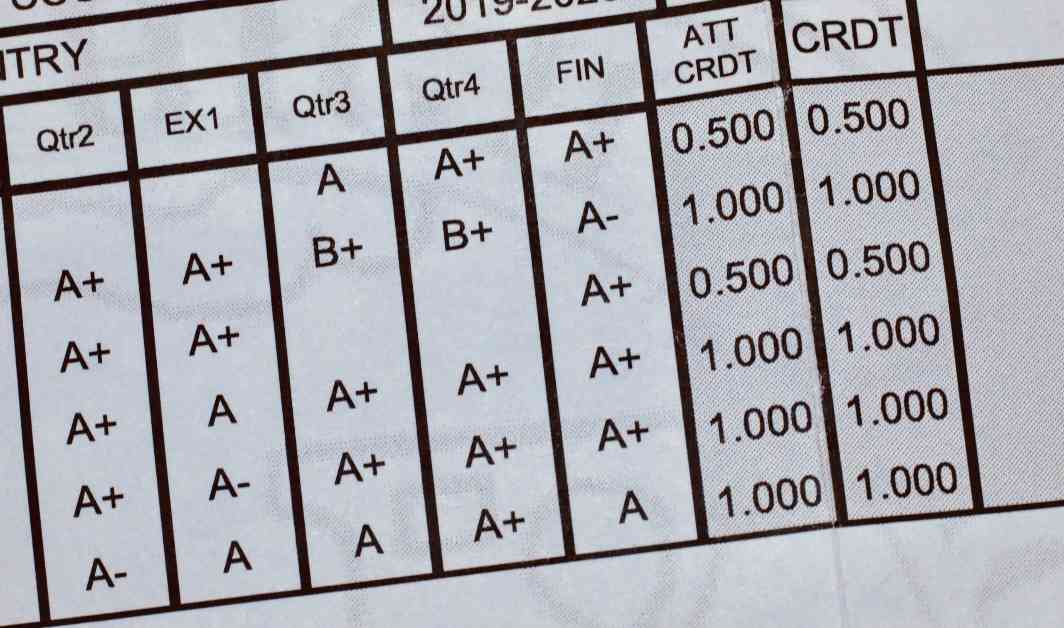A recent study conducted by the Equitable Grading Project has revealed shocking findings about the accuracy of grades given to middle and high school students. The study analyzed 33,000 course grades and found that nearly six out of 10 grades were inaccurate. Inaccurate grades were defined as those where a student’s test score indicated a different level of knowledge than the grade they received in the course.
The analysis showed that inflated grades were more common than depressed grades, with over 40 percent of the grades being higher than they should have been. This can lead to students being placed in advanced courses without the necessary foundation or support, while depressed grades can discourage students from pursuing certain subjects or even cause them to drop out of school.
The discrepancies in grading were found to have a significant impact on students, particularly those from low-income backgrounds. The study highlighted that inaccurate grades make it difficult to determine which students are prepared for advanced coursework or college, potentially denying students opportunities they are eligible for.
The report also pointed out that grade inflation disproportionately affects Black and Hispanic students compared to Asian and white students. Additionally, it noted that factors such as teacher pressure, participation, behavior, and homework completion can influence grades, leading to inaccuracies.
In an effort to address these issues, the Equitable Grading Project has been working with teachers to implement mastery-based grading, which focuses on academic achievement rather than extraneous factors. However, changing grading practices is a complex and challenging process that requires time and effort.
The study emphasized the need for more research and evidence-based solutions to improve grading practices in schools. By raising awareness about the impact of inaccurate grades, the Equitable Grading Project hopes to promote fair and equitable assessment methods for all students.
As educators and policymakers continue to grapple with the issue of grade accuracy, it is essential to prioritize student learning and academic readiness in grading practices. By supporting initiatives like the Equitable Grading Project, we can work towards creating a more equitable education system that benefits all students.







